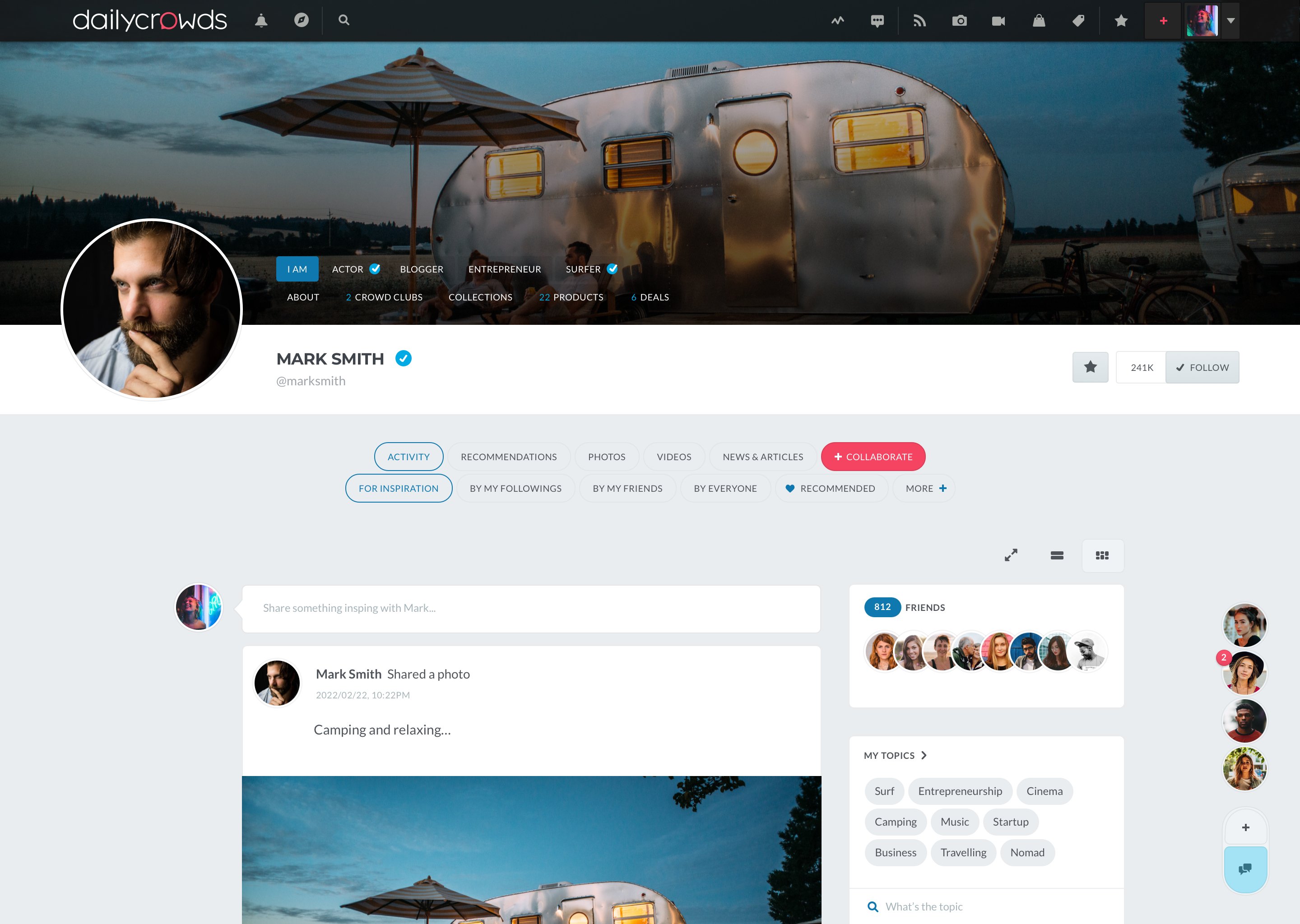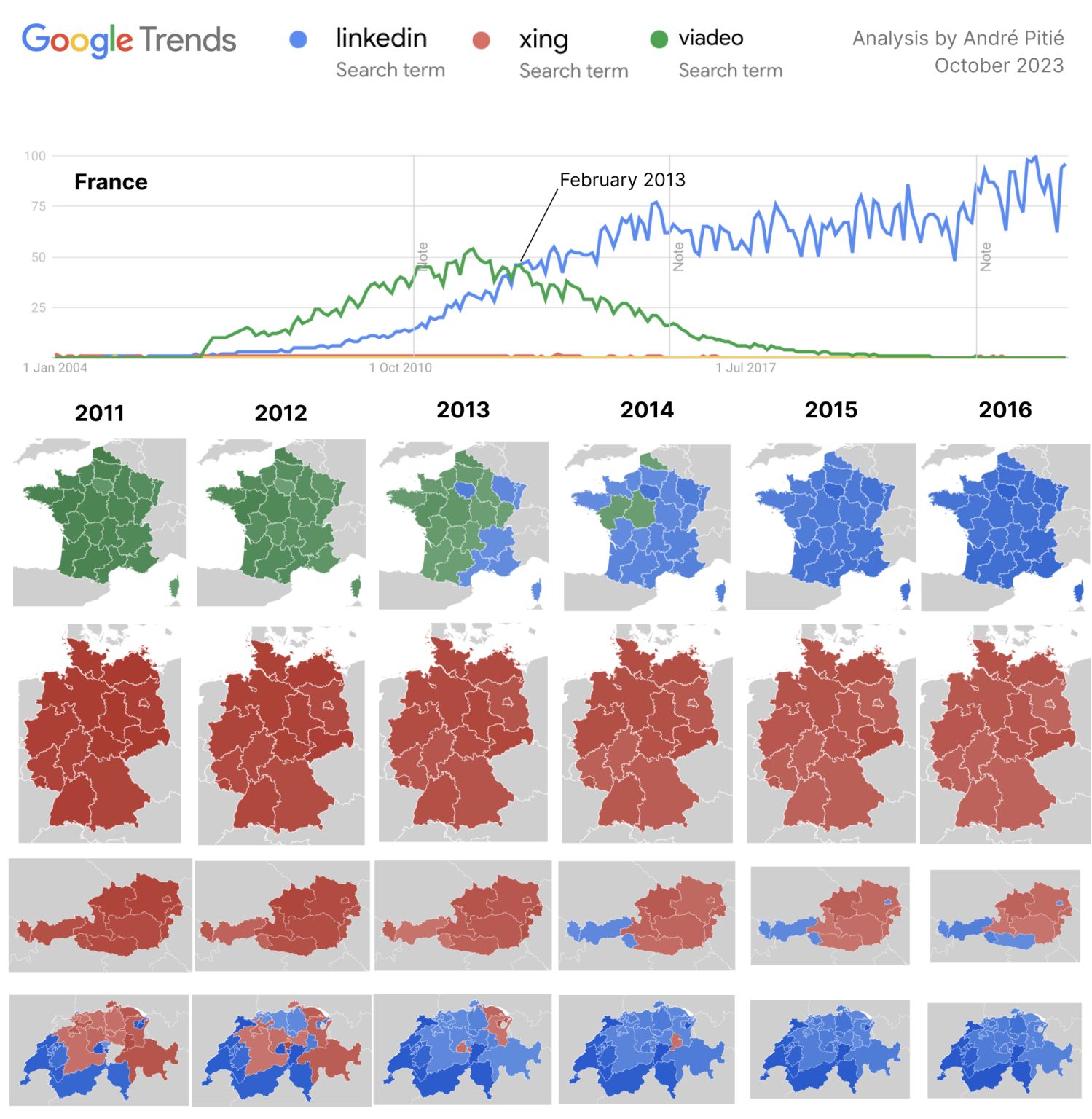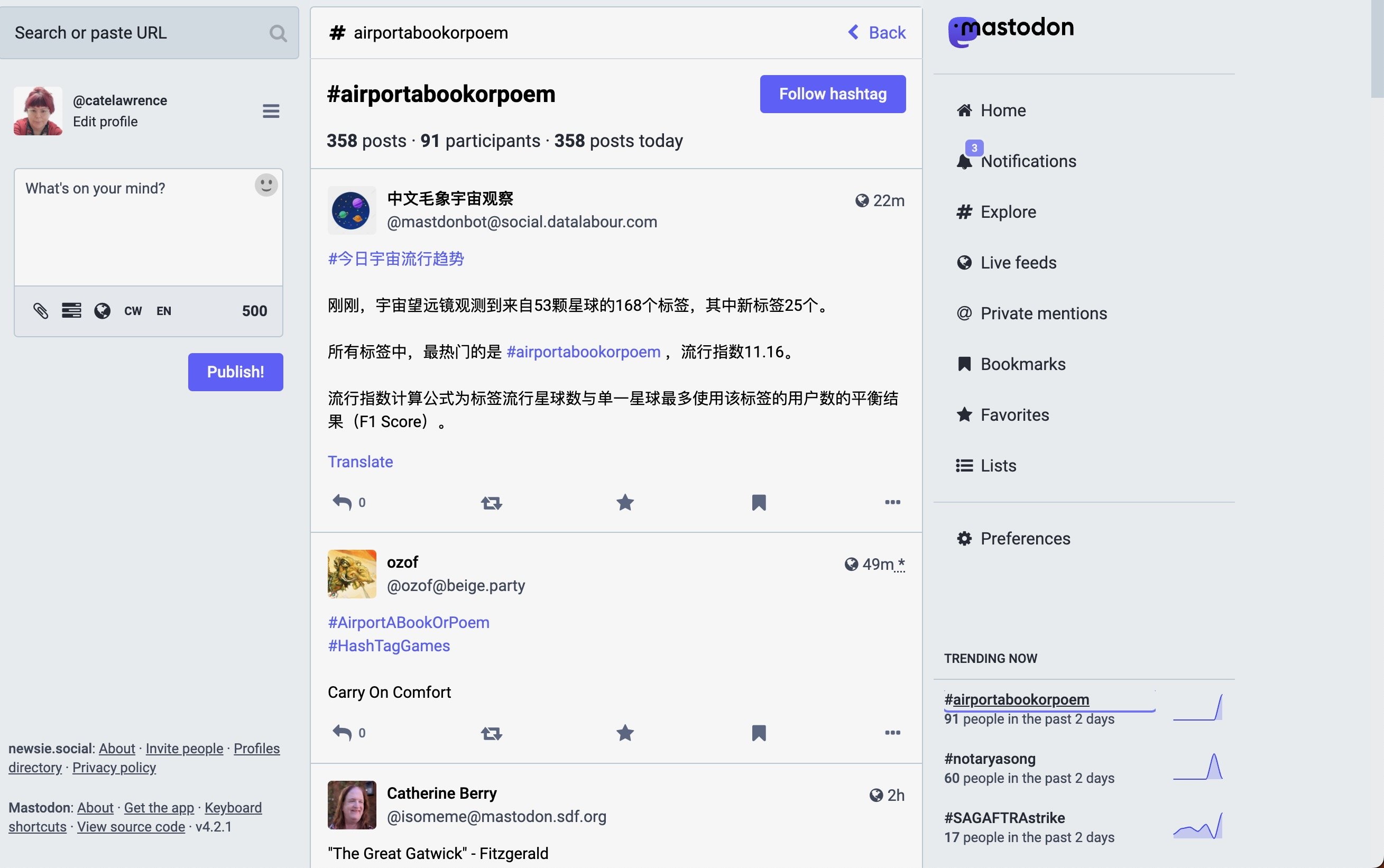Today marks the launch of a new social network out of Portugal. Daily Crowds aims to generate content using a natural language search engine and a discovery and recommendation system for both online content and events.
It's part of a new breed of European social networks aiming to differentiate themselves from traditional networks like Facebook, Instagram, Medium, Linkedin, Twitter/X, and TikTok.
But t's no easy feat. You only need to look back to see a veritable graveyard of companies, including Peach, Nettby, FFFFOUND!, Friendster, and Netlog.
I spoke to Isabel Costa Pinto, co-founder of Dailycrowds, who told me that the platform aims to provide "captivating content " stating:
"When someone wants to decide what to do, what to read, what to visit, what to wear, which movie to watch or product to buy, etc., Dailycrowds aims to be the starting point."

Honestly, it's a bit hard to explain, so I downloaded it myself — I was laying low with a cold, so I had some time.
It reports to offer a space where active user participation and AI come together "to produce the best way to generate relevant content on any topic, with the highest degree of specificity ever seen on the Internet."

I started to search. I put 'cool Berlin bars' in the search engine and had no searches, then Berlin, and again nothing. Clearly, there are no active users in Berlin, fair enough. Perusing the site suggests its beta testers were concentrated in Portugal, where it shows conversation, articles, pictures, posts etc.
Future location-specific information will expand to include job offers, products, services, and deals.
Ad-free, and currently bootstrapped, Daily Crowds will be monetised through "businesses doing business"" on its network. Costa Pinto explained:
According to Costa Pinto, the challenge will be to make people understand the network and its value.
"Comparisons are inevitable, and the main challenge comes down to making the user forget everything they already know about other networks and move forward to Dailycrowds with the eyes of someone experiencing something new for the first time."
Researching DailyCrowds made me wonder what else is European-owned.
Let's take a look.
The old school way: employment and recruitment done locally.
For employment, there are two big ones, and they go way back.
If you're in the DACH region, you might already be active on XING, a social network for business professionals. It has around 13 million users, was founded in 2003 and has been publicly listed since 2006. It employs over 650 people and has raised €5.7 million in funding, including a 2005 Series A round.

Viadeo, a French equivalent, was founded a year later. From its early days, it looked promising. It raised $57 million, most recently raising funds in 2014.
When it went public in 2014, Viadeo was valued at €150 million. But attempts to expand into other regions, including China and the US, failed.
After being placed in receivership 2015, its capitalisation had collapsed below €10 million, when the company's listing was suspended. It was placed in receivership in 2016 and sold to Le Figaro for a reported €1.5 million.
Marketing professional André Pitié highlights the fact that while LinkedIn became more "trendy" than Viadeo already in February 2013, Xing resisted until April 2020 in Germany and is still able to hold its own against the US giant.

By comparison, Xing became the first Web 2.0 company to go public in Europe, debuting in December 2006 at an issue price of 30 Euros per share. It raised €35.7 million in an IPO and is still actively used today, although its unclear how its reach will extend to younger generations.
Entering the new: The Fediverse
If we step outside of Xing and Viadeo, the biggest efforts in new social media today in Europe are within the Fediverse, a network of platforms where members can interact between the services using a set of open protocols and standards, such as a common language called ActivityPub. This enables users on one platform to connect across the networks without creating an account on each network.
And it's gaining traction. WordPress announced last month that it was adding the ActivityPub plugin to its site.
Specifically, these are globally driven initiatives, but there are a few with their roots located in Europe, primarily Germany.
Plucky rivals for Twitter's nest

The most well-known is Mastodon, a free, open-source platform providing microblogging similar to Twitter/X via independently run nodes, known as instances or servers.
Each has it's own code of conduct, terms of service, privacy policy, privacy options, and content moderation policies. Users join one server, but the federated system allows them to connect with people on other servers.
It was started in 2016 as an open-source project by Eugen Rochko, sole owner and CEO, and is it's supported by German not-for-profit Mastodon GmbH, which develops the Mastodon software.
Mastodon grew in prominence in April last year when Elon Musk announced he was purchasing Twitter, acquired in October for $44 billion.
According to Rochko, users grew to 665,000 active users in early November 2022. Since then, Mastodon has grown to over 7 million users.
In a July 2023 post, Rochko said monthly active users crossed the 2 million mark.
Mastodon does not support advertisements but has raised almost $100,000 in donations via fundraising site Open Collective. The site also earns €24,210 per month from Patreon supporters and an undisclosed amount from corporate sponsors in return for adding their logo to the site.
Rochko told the Financial Times that he would not sell Mastodon despite offers from five US-based investors to invest "hundreds of thousands of dollars."
"Mastodon will not turn into everything you hate about Twitter," said Rochko. "The fact that it can be sold to a controversial billionaire, the fact that it can be shut down, go bankrupt and so on. It's the difference in paradigms ."
It currently claims 1.6 million active users - a far cry from the 7 million who signed up in the first place.
Founded also in Germany, Pleroma is another microblogging site and the second most popular Fediverse server software behind Mastodon. Its biggest benefits are its system and tech light. For example, it can even run well on a Raspberry Pi for low-user servers.
According to Pleroma's founder Alex "lain" Gleason:
"This project was born out of frustration with Discord (good but non-free) and Matrix (free but non-good… for my use case), and it's progressing well. I should have something out to test for people very soon. I hope that it can be an alternative to systems like Discord or Slack."
The company recently got a €30,000 grant from the NL Net Foundation. https://nlnet.nl/project/Pleroma/
The markdown of Facebook
Also in Germany is diaspora* founded by four students: Max Salzberg, Daniel Grippi, Ilya Zhitomirskiy, and Raphael Sofaer, in 2010 as a response to privacy concerns related to centralised social media platforms.
It could be considered a loose alternative to Facebook for people who work constantly in markdown.
Like other Fediverse methodologies, you find and join a set node (called a "pod"), or start your own. It offers a text version ( in markdown) of networking sans events. diaspora* currently supports cross-posting to your Twitter, Tumblr, and WordPress accounts, with more to come.
It allows users to share status updates, photos, and messages with their contacts.
Going Beyond YouTube
Also part of the Fediverse is PeerTube, developed by Framasoft, a French non-profit educational organisation.
It's an open source P2P tool using web torrenting tech that allows you to create a video-hosting website akin to your own YouTube. Unlike YouTube's centralised platform that runs on a single server farm" it creates a network of multiple small interconnected video hosting providers.
Anyone can download and install PeerTube to host videos on a specific domain name.
Besides being free, its decentralised nature reduces server bandwidth overload if a video becomes viral. Oh, and there's lots of weird stuff, including more than likely, people that got kicked off YouTube. Yes, this makes me uncomfortable. There's also stuff like gardening videos, Halloween decorations and animation.
By the people for the people?
Some of the most significant upsides and downsides of the Fediverse are that it is developed by many techie people (dare I say "by nerds for nerds?") based on ideology, not commerce. A VC-funded Fediverse would be an entirely different beast.
And when you do something with the best intentions, you don't always need to worry about the most significant things that attract and retain users, like aesthetics and UX, as if you are working for profit.
Take Mastodon. It's a clunky user experience for the uninitiated, from the need to join a server from the 9,000 in existence to the interactive experience with people on different servers. It fast becomes clear, but I'm not sure I could explain it to my parents and their friends.
Each is run by its own volunteers who may or may not solicit donations. Anyone with interests, hobbies, politics, or whatever can run servers.
However, each server's lifespan is as long as the efforts of its founders.
I hate to say it, but most people who aren't into tech would sacrifice the benefits of decentralised social networks for a more efficient user experience. I'd like to know how many registered users are active and how many people migrated from traditional social media only to go back.
The two biggest challenges of Federated servers are their community-driven status and openness.
Much of the labour involves the goodwill of unpaid volunteers who may burn out, lose interest, and migrate to financially rewarding work. This is less likely to occur in a startup run by a funded company with a board of directors unless you are Twitter/X.
Further, while Fediversel platforms are committed to privacy —- heck, even the EU has dabbled with PeerTube —- the internet can be a horrible place of discrimination and harassment and worse. Groupthink is not always right and is often downright dangerous. While new social media thinks a lot about how to govern the Internet, it raises bigger issues beyond this article about how its "policed."
No EuroTikTok?
What's notable in all of these examples, is the absence ofa European alternative to TikTok. (If you're making one, let me know).
The closest we've come is again from Germany.
Remember Dubsmash? Dubsmash was founded in 2014 by Jonas Drüppel, Roland Grenke, and Daniel Taschik. Like all good things, the founding team met in 2012 during a hackathon in Berlin. Reaching 50 million downloads within six months, and becoming popular with celebrities, it raised €20 million.
However, it struggled with user retention and expanding the product beyond lipsyncing, and was acquired by Reddit in 2020, which integrated its tools into its own video creation editing suite and closed the site down.
Many are startups focusing on video production, including Colossyan in Berlin, Oxolo in Hamburg, and Flawless in London. A new kind of TikTok might be the next thing to come. But until then, we have no real commercial rivals to Meta, and Twitter/X.



Would you like to write the first comment?
Login to post comments